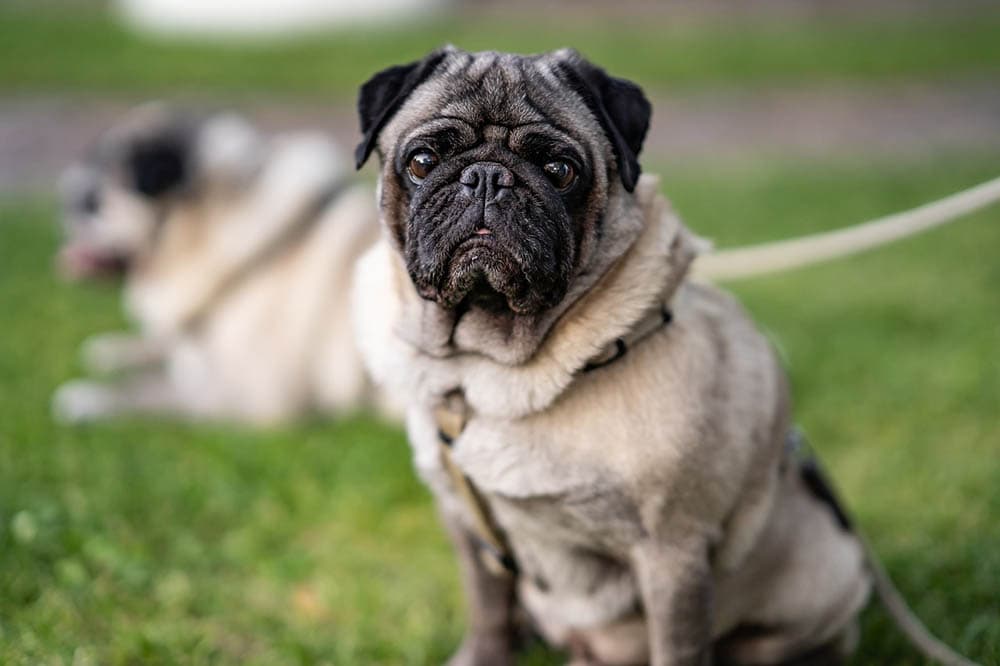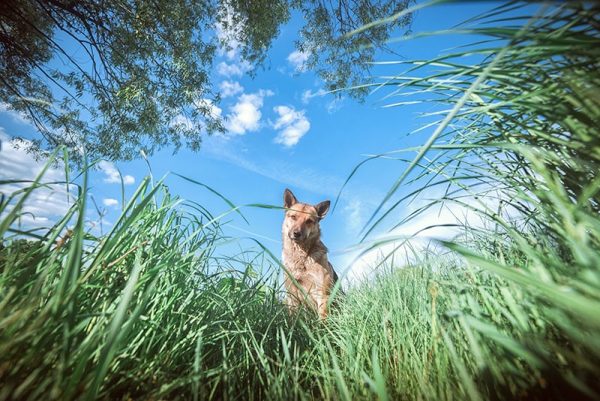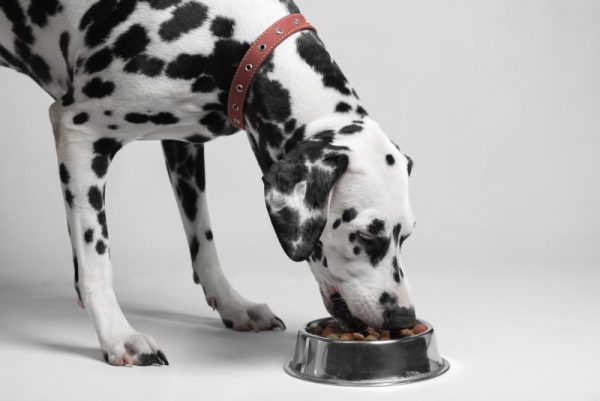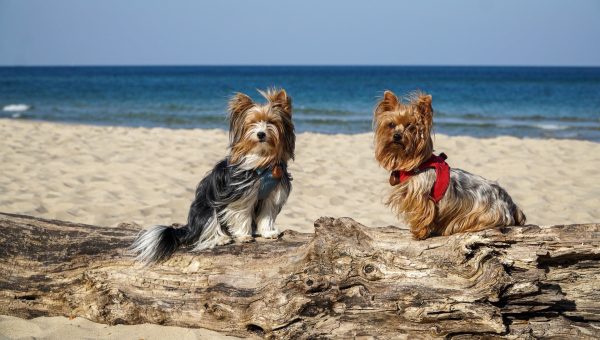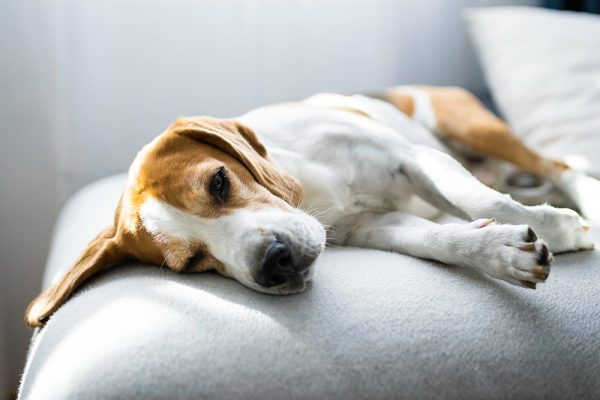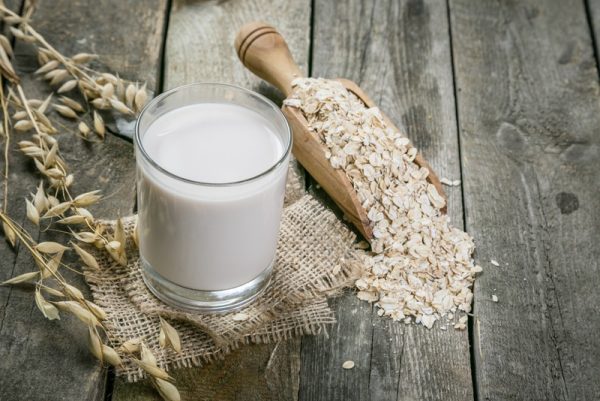In this article
Pugs are a beloved dog breed, known for their wrinkled faces, curly tails, and charming personalities. Originally hailing from China, Pugs have been popularized in Western culture thanks to their cuteness and character. There have been famous Pugs throughout history, including Napoleon Bonaparte’s beloved Josephine and many Pugs owned by Queen Victoria. In this article, we’ll explore the beauty and diversity of Pug coats, including the different colors and patterns found in these adorable dogs.

The 8 Different Pug Colors & Patterns
Pug Coat Colors
Pugs come in a variety of colors, ranging from solid colors to color combinations. Here are the most common Pug coat colors:
1. Fawn Pugs
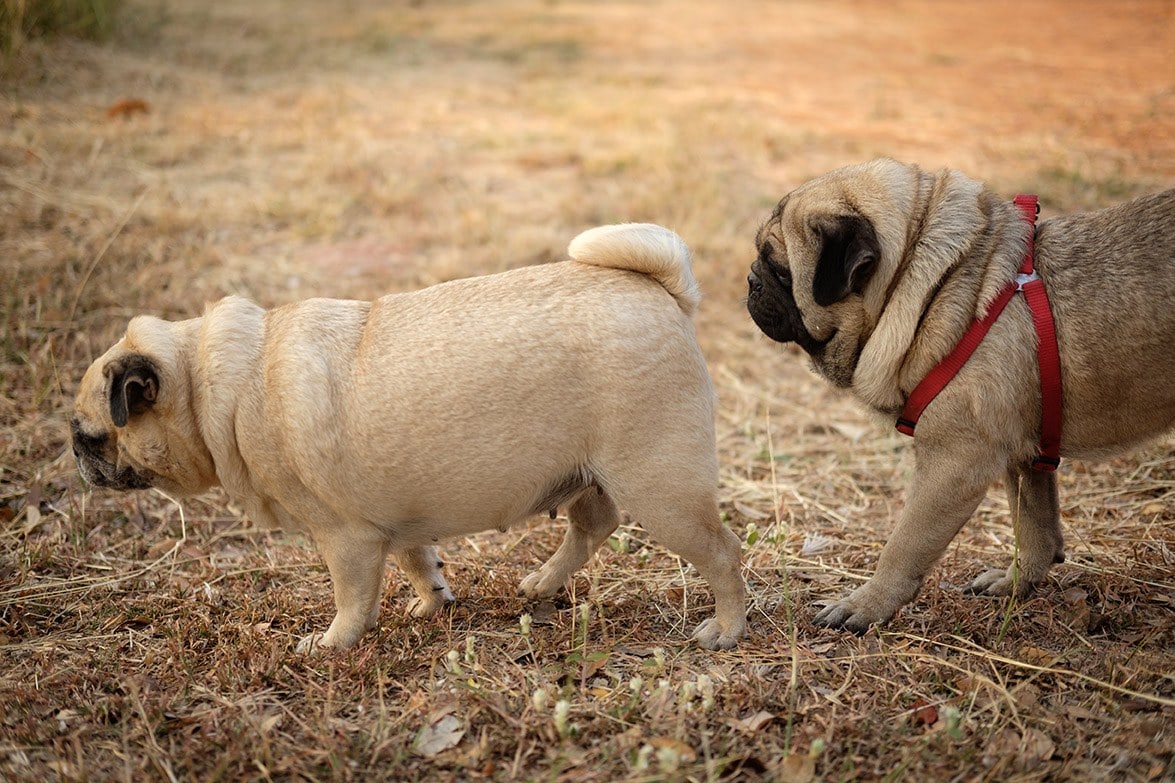
Fawn is the most common coat color found in the breed, with almost 2/3 of all Pugs having this coloration. This color ranges from light cream to a deeper tan, with a black mask over the eyes and ears. Fawn Pugs have a distinctive, regal look.
2. Black Pugs
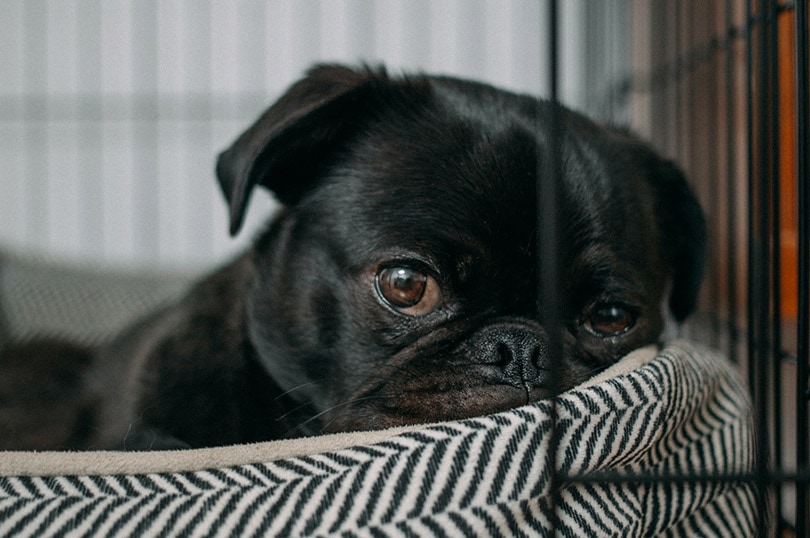
Black Pugs are one of the most sought-after and popular colors for Pug enthusiasts. Around ¼ of Pugs have a black coat. The coat of these Pugs is shiny and jet-black that looks sleek and elegant.
3. Silver Pugs
Silver Pugs, also known as platinum or silver fawn Pugs, have a lighter coat than fawn Pugs, with a silver or light-gray color and sheen. They often have black markings or a black mask. This is a pretty rare color when it comes to Pugs.
4. Apricot Pugs
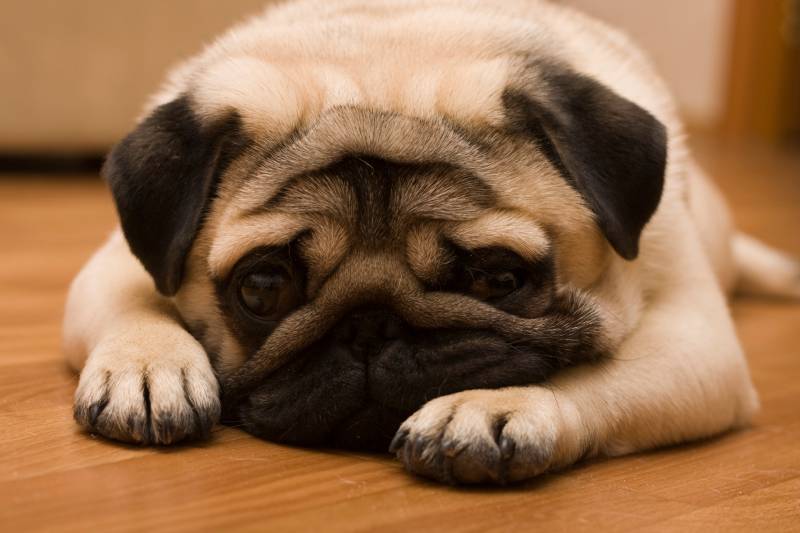
Apricot Pugs have a solid apricot-colored coat with a black mask over the eyes and ears. This color is a relatively new addition to the Pug family, with more breeders experimenting with apricots in recent years. That being said, Pugs with this coloring are still rare.
5. Brindle Pugs
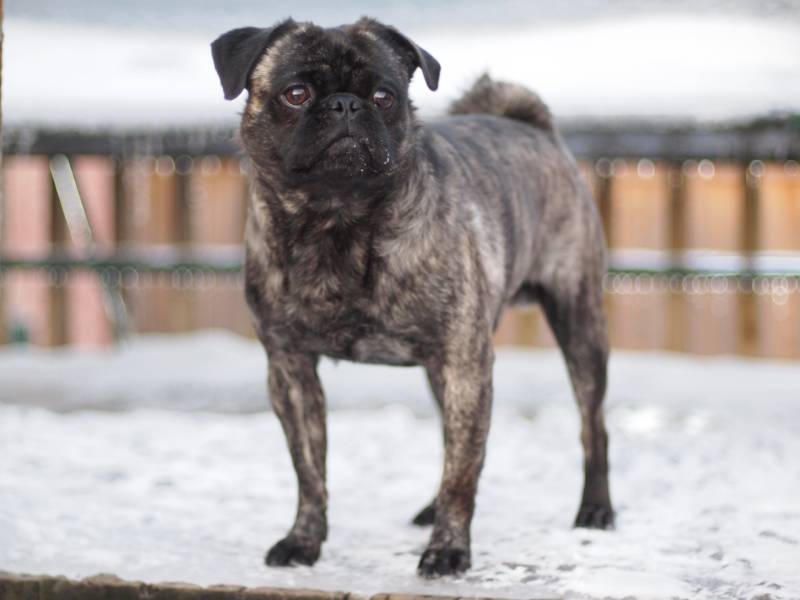
Brindle Pugs have a unique coat pattern with darker stripes woven into a lighter background color. The lines can be black or a dark shade of brown. The brindle pattern is less common than solid colors but is still a popular option.
6. White Pugs
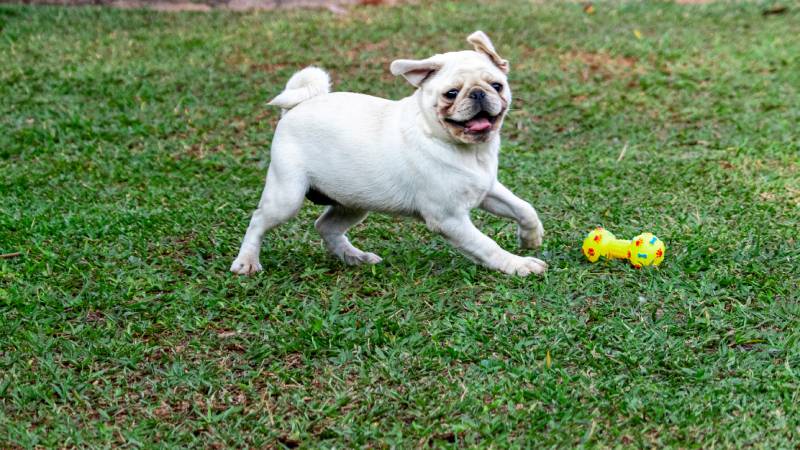
White Pugs have a pure white coat without any other markings. While white Pugs are not as common as some other colors, they are still relatively popular and sought-after by some Pug enthusiasts, thanks to a white Pug named Marshmallow of Internet fame.

Pug Coat Patterns
In addition to solids and combinations, Pugs can have unique coat patterns that distinguish them from other dogs. Here are some of the most common patterns found in Pugs:
7. Maskless Pugs
Some Pugs do not have the typical black mask over their eyes and ears like most. Instead, maskless Pugs have a fawn or silver color coat that is mainly uniform throughout.
8. Double Mask Pugs
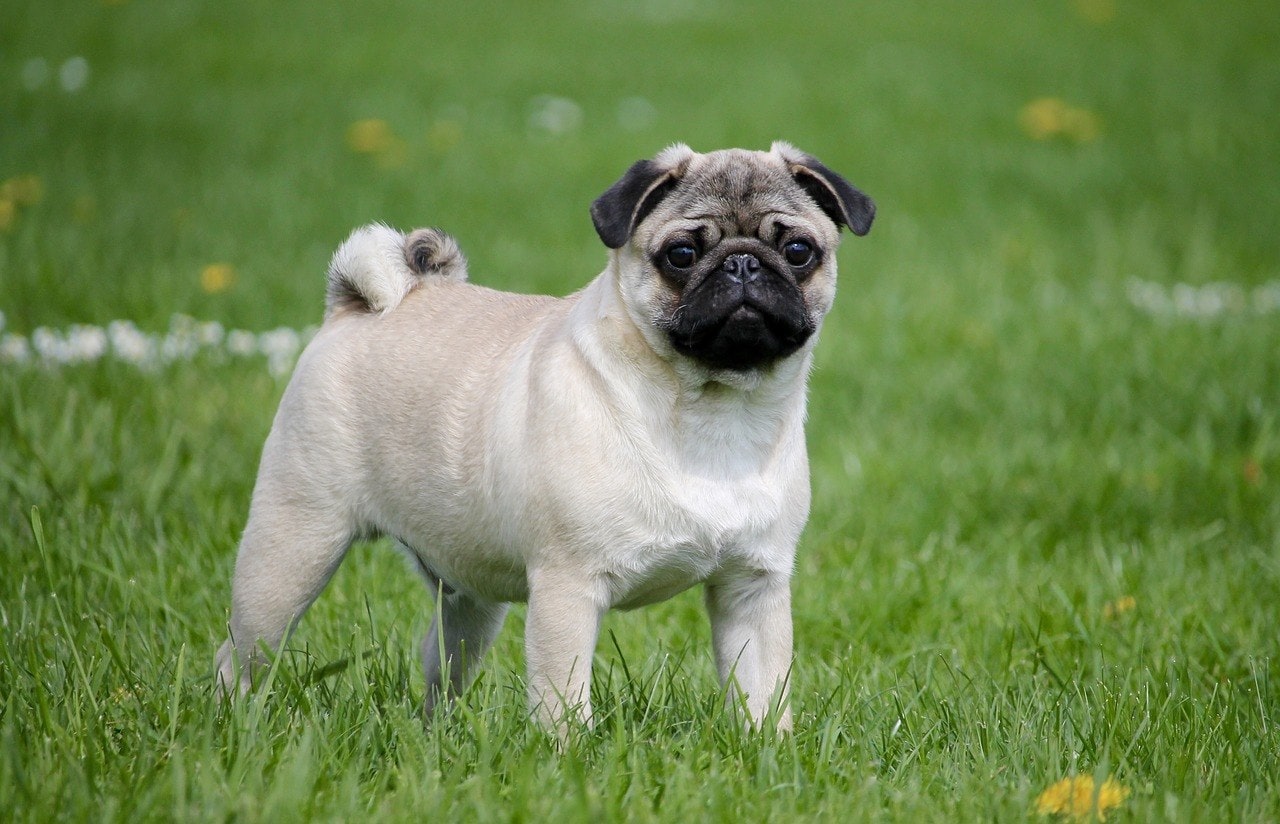
Double mask Pugs have a black mask on their face but also have black patches on their ears that look like a second mask. This unique pattern is rare but is gaining popularity among breeders.

How the Pug’s Color and Pattern Are Determined
The color and pattern of a Pug’s coat are determined by its genetics. Pugs inherit their coats from their parents, and the genes for certain coat colors or patterns will be passed down through generations. Some Pug breeders may try creating unique coat patterns or colors, but this can be tricky as the results may only sometimes be as expected. Ultimately, a Pug’s coat will depend on its genetic background and the specific traits inherited from its parents.
Which Colors and Patterns Are Common, and Which Are Rare?
Fawn and black Pugs are the most common coat colors, with silver, apricot, and brindle being less common. White Pugs are relatively rare, but some breeders specialize in producing them. Solid coats are generally more popular than other patterns, but double mask Pugs can be seen occasionally. Finally, for those looking for something truly unique, maskless Pugs can provide a one-of-a-kind look.
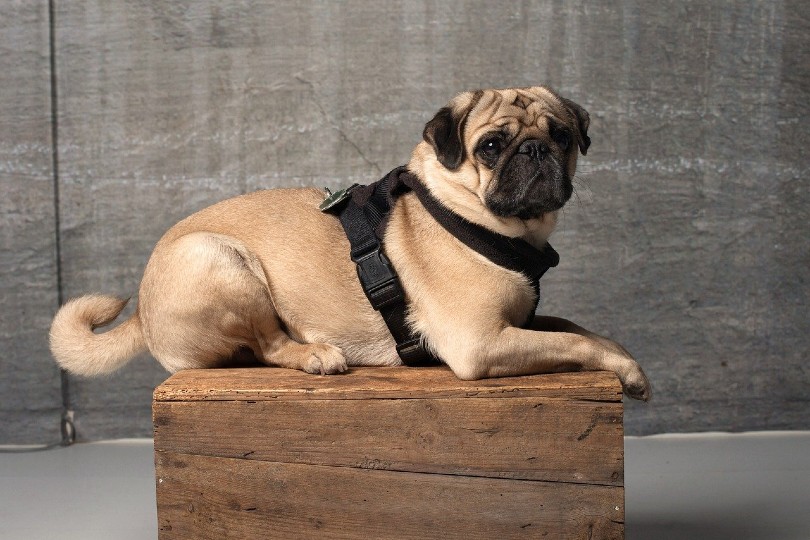
Finding a Pug With Your Perfect Pattern and Color
Whether you’re looking for a solid color, a unique pattern, or something rare like a white Pug, plenty of options are available. Many breeders specialize in certain colors or patterns and can help you find the perfect Pug to fit your needs. With so many different coat variations to choose from, it’s no wonder that Pugs have become such beloved companions!
Please keep in mind that what is far more important when choosing a Pug is how it fits into your household and lifestyle. What a Pug looks like isn’t going to matter if a mismatched relationship leads to stress and even re-homing.
No matter your Pug’s color or pattern, they will surely bring you years of love and companionship. So if you’re considering getting a Pug, don’t let their coat be the deciding factor – look for a healthy, happy and well-social pup. That’s the most important thing of all!
Health Concerns Related to Pug Coats
Pug parents should be aware of some potential health issues related to their dogs’ coats. Pugs are prone to skin conditions and allergies, which can cause itching, scratching, and discomfort. Proper grooming and hygiene are essential to help prevent these issues.
Pugs also shed a lot, especially during certain times of the year. Regular brushing and grooming can help manage shedding and prevent hair build-up. Finally, the folds on their faces can be prone to irritation and infection, so owners should clean the face folds to prevent any health issues.
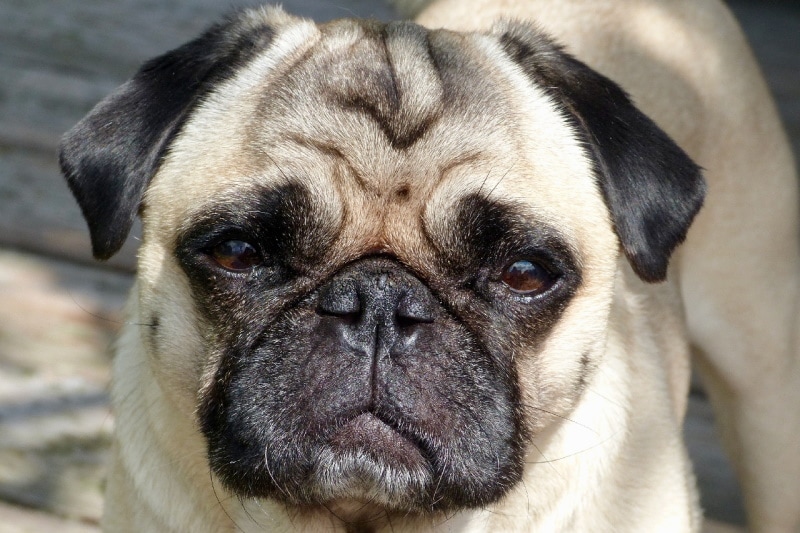
Grooming and Hygiene for Pugs
Regular grooming and hygiene are essential to keep a Pug’s coat healthy and shiny.
- Brush your Pug’s coat at least once a week to strengthen your bond, remove loose hair, and give your dog’s coat and skin a once-over to look for changes.
- Bathe your Pug every 3–4 months to maintain cleanliness and prevent odors.
- Wipe your Pug’s wrinkles with a clean cloth to prevent infections and irritation.
- Trim your Pug’s nails regularly to prevent them from scratching and damaging their coat.
- Use a high-quality shampoo and conditioner formulated for dogs to avoid irritation or other issues.

Other FAQ About the Pug Coat
Q: Are Pugs hypoallergenic?
A: No, Pugs are not considered to be hypoallergenic. They do shed quite a bit, so those with allergies may want to look for a different breed.
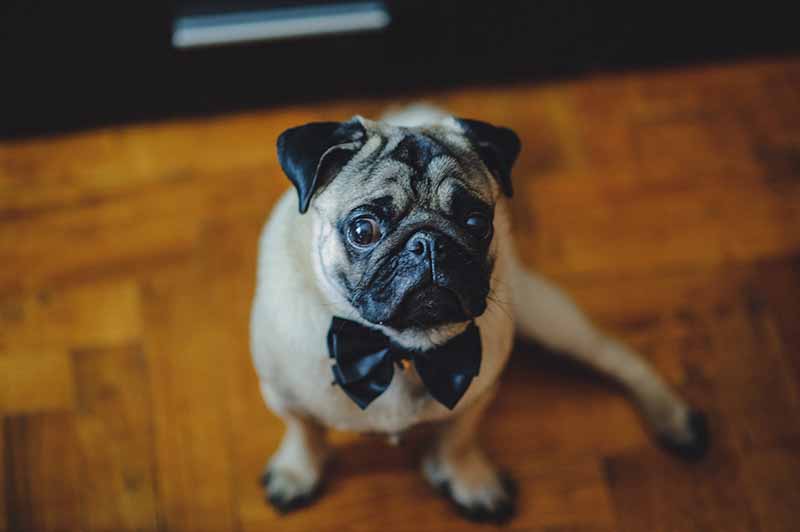
Q: Does a Pug’s coat color or pattern influence its temperament?
A: No, the coat color and pattern do not influence a Pug’s temperament. A dog’s personality is formed through early socialization and exposure to different environments, so it’s best to look for one that has been well-socialized and fits with your lifestyle.
Q: Is it true that some colors of Pug are good luck?
A: Some cultures believe that having certain colors of Pug can bring good luck. In China, for example, black Pugs are often seen as symbols of wealth and prosperity. Similarly, white Pugs bring peace and serenity to their owners in Japan. However, these beliefs vary from culture to culture and should not be the only reason to choose a particular color or pattern. Ultimately, it’s far more important to find a Pug that is healthy and happy, no matter what color their coat may be.
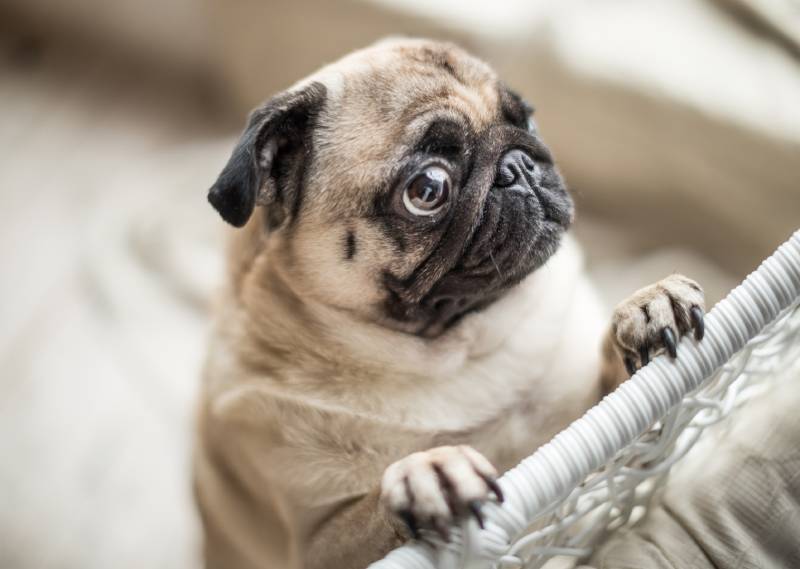
Q: What are the most visually interesting Pug mixes?
A: Mixing the Pug with other breeds can yield some interesting and unique results. A few of the more popular combinations are Pug-Labrador, Pug-Shih Tzu, and Pug-Poodle. Each one has its own unique look and personality, so it’s worth researching them to find which one fits best with your lifestyle.

In Conclusion
Pugs are a unique breed of dog with a variety of colors and patterns that make them stand out from other dogs. From solid color coats to combination patterns like the brindle pattern, Pug parents have a lot of choices when it comes to selecting a Pug with a beautiful coat.
However, Pug parents should also be aware of some of the potential health concerns related to Pug coats and take proper measures to prevent them. By practicing good grooming and hygiene habits, you can help keep your Pug’s coat healthy and shiny, leading to a happy and comfortable furry friend.
See also:
Featured Image Credit: Toberoon, Pixabay
